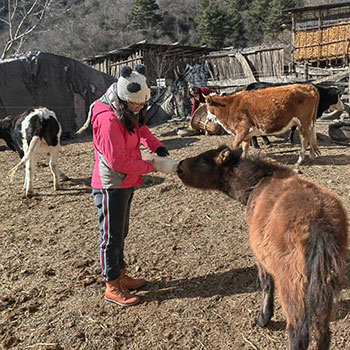Wu Xiaohong
My journey in animal welfare began in 2004 through collaboration with the Royal Society for the Prevention of Cruelty to Animals (RSPCA). Over the past two decades, I have had the privilege of participating in landmark achievements, such as drafting the first document, Beijing Consensus, in China, calling for improvements in farm animal welfare. This document was discussed during the FAO Global Conference on Sustainable Livestock Transformation in 2023. I also co-initiated the China Animal Welfare Sciences Conference and taught animal welfare courses at Sichuan University. I have also contributed chapters on animal welfare education, such as "Exploration and Application of Scenario-Based Teaching Method on Social Issues in the Public Elective Course 'Animal Welfare and Consumer Ethics'" (2022, Sichuan University Press) and “Caring for Life: Human-Animal Relationships” (2022, Sichuan University Press).
After working on farm animal welfare issues in China for such a long time, I profoundly recognize that the understanding of the consumer’s awareness towards farm animal welfare and factors influencing consumer awareness towards farm animal welfare and how these factors collectively impact people’s awareness is crucial. This awareness, in turn, plays a significant role in shaping the effectiveness of strategies aimed at promoting a welfare-oriented animal food production system in China.
Therefore, my proposed Ph.D. research is "An Exploration of the Awareness of Dairy Cattle Welfare among Post-1990s Chinese Urban Citizens and Their Consumption Choices in Relation to Dairy Products: A Case Study from the City of Chengdu." This research aims to bridge the gap in our understanding of the attitudes and behaviors of contemporary Chinese consumers towards farm animal welfare, with a specific focus on dairy cattle and the post-1990s generation. This ethnographic-approach research will complement previous quantitative studies on the similar topic from economic and sociological perspectives in China.

